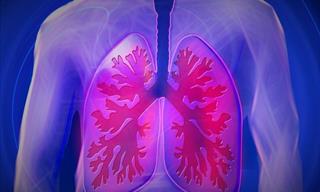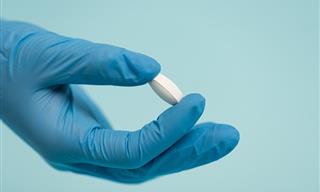Putting the cigarette down can be very hard, something I know firsthand. Smoking is a compulsive habit that’s reinforced by nicotine, an extremely addictive substance. Simply making up your mind to quit might not be enough, as you come under assault by physical and psychological cravings for your fix of nicotine and tobacco.
Even if you manage to suppress these voices, you will probably experience a host of withdrawal symptoms, including fatigue, depression, weight gain, and anxiety. Couple that with years’ worth of abuse you’ve inflicted on your body through inhalation of toxins, and you’ve got one heck of an uphill struggle ahead of you.
All of this being said, it’s worth it. Quitting, at any age, has been shown to have a positive effect on life expectancy and general health. If you’ve made the choice to stop smoking, we commend you and want to help you out on your journey to becoming nicotine-free. Here are our suggestions for detoxifying your body and overcoming nicotine craves.
1. Try Nicotine Replacement Therapy
Depending on how severe your withdrawal is, you might consider trying nicotine replacement therapy (or NRT) and other, more medically conventional ways of battling nicotine addiction. NRT is therapy wherein the patient takes controlled amounts of nicotine through various tobacco-free methods and has been demonstrated to have a 50-70% efficacy in helping people quit smoking.
Other treatments include bupropion (an antidepressant that reduces cravings and the symptoms of withdrawal) as well as varenicline (a prescription medication that reduces the pleasure sensation derived from smoking).
2. Give Your Lungs a Workout
After all of the abuse they’ve gone through, your lungs need rehab, pronto. The best way to steadily restore them to proper shape is exercise. The best workout program for this purpose focuses primarily on cardio. Running, jogging, swimming and kickboxing are all great ways of building up lung endurance (we have great articles about the benefits of aerobic exercise, and of swimming in particular).
As a bonus, perspiration is a great way to expel toxic elements from the body.
Another advantage of exercise it that it releases endorphins, which give us the same “feel-good” sensation that smoking used to deliver.
3. Trick Yourself
I remember quite vividly the month I quit cigarettes. I decided I was done buying packs, opting for single cigarettes instead. I would smoke two cigarettes a day- one in the morning, and another on my way back home. Then came a particularly rainy week, and I figured that it wasn’t so fun smoking in the cold and damp outside, so I stopped buying cigarettes. The rain subsided eventually, but I didn’t look back.
I also remember this conversation with my grandma: I asked her how she quit smoking, and she told me “I never did, I just keep postponing the next cigarette.”
Quitting is a lot about self-manipulation, as harsh as that may sound. Find excuses that further your goal of getting rid of nicotine, and latch onto them.
4. Strengthen Your Resolve
Our minds are extremely pliable and respond to many things that aren’t strictly “rational”, as mentioned in the previous point. But there are other, less manipulative ways of making our minds do what we want them to. One such way is to track your progress, write about it and possibly share it with your peers and friends. By committing your journey to paper, you are reinforcing your choice and giving it profound thought. By sharing it, you are making a sort of ceremonial pact with your environment to stick to your guns.
5. Change Up Your Diet
There are several foods and drinks that act as detoxifying agents for nicotine (we have a great list of some here. If you pair your cigarettes with a drink as many do (typically beer or coffee), try to abstain from that particular beverage, as the ingrained association may cause a strong craving.
Another near-magical spice that is highly recommended for consumption by former smokers is turmeric, which, beyond its many other health benefits, is an anticarcinogen (helps preempt the development of cancer).
6. Rest Up
Our bodies are incredibly sensitive things, and take some time to adjust to the dramatic changes in lifestyle we put them through. As the body begins to recover, it expends a lot of energy, leaving us feeling drained and tired. Listen to your body and give it what it desires- rest often and go to sleep earlier than you’re used to. Give it the opportunity to- quite literally- take a breather.
7. Keep Busy
One of the reasons people seem to like smoking is that it provides an easy distraction and satisfaction for when they’re bored. Scratch that itch with something a bit more productive: pick up a hobby or invest more time and attention in your current hobbies. There are many hobbies that require very little time and effort to learn and engage in that you can easily practice during a lunch-break, such as knitting, origami and Rubik’s Cube.
8. Practice Your Breathing
Another great way to build up lung-strength that is less physically exerting is to practice deep breathing. Diaphragmatic breathing maximizes oxygen intake and is known to relieve stress, and is thus highly effective in combatting withdrawal symptoms. For your benefit, here is an article about deep breathing that includes practical exercises you can do anywhere.
9. Meditate
It may sound cliché, but it really helps. Mindfulness meditation teaches you how to stop playing hostage to your own whims and cravings by observing them as they come dispassionately and letting them dissipate of their own. It is incredibly effective in giving you back control over your life and your mind. For more information about what mindfulness meditation is and what its pragmatic applications are, check out our article here.
 Go to BabaMail
Go to BabaMail





























































